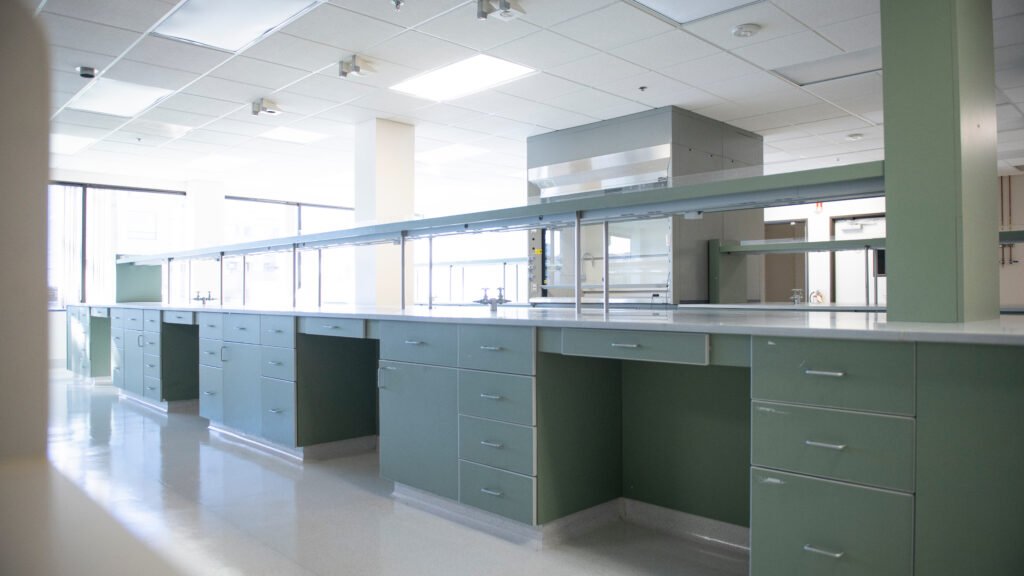Want to stay on top of the science and politics driving biotech today? Sign up to get our biotech newsletter in your inbox.
Good morning, everyone. Damian here with news of a 2021-sized biotech round that has echoes of 2011, plus an ESMO recap and a curious stock move.
advertisement
The need-to-know this morning
• Novartis reported third-quarter adjusted earnings of $1.74 per share, or 3% ahead of analyst consensus. Total sales were $11.78 billion, also higher than expectations.
The latest VC megaround has a pragmatic twist
A new biotech company raised $245 million not to build a preclinical platform, license headline-grabbing science, or use artificial intelligence for some loosely defined goal.
Instead, as Allison DeAngelis reports, Aiolos Therapeutics’ business follows the old-fashioned biotech approach of taking something that works and making it work a little better. The company’s lead drug, AIO-001, works a lot like Amgen and AstraZeneca’s recently approved asthma medicine, but instead of requiring monthly dosing, it would be administered every six months.
advertisement
That promise was enough to persuade a syndicate that includes Atlas Venture, Bain Capital Life Sciences, Forbion, and Sofinnova Investments. Aiolos’s fundraising success calls to mind the biotech market in the years following the financial crisis, in which business models beat science projects in the quest for funding. And considering the sector’s current protracted decline, that comes as little surprise.
The scorecard after ESMO
In the aftermath of Europe’s biggest cancer meeting, Johnson & Johnson is on the upswing, AstraZeneca has questions to answer, and Novartis’ multibillion-dollar investment is looking wiser by the day.
As STAT’s Andrew Joseph reports, among the conference’s most crowded session was the one where J&J presented data showing its combination therapy outperformed AstraZeneca’s Tagrisso in a study enrolling patients with a certain type of lung cancer, escalating competition between the two companies.
Elsewhere, a different lung cancer drug from AstraZeneca posted disappointing results, casting doubt over its future on the market. While Novartis, among the pioneers in radiopharmaceuticals, reported data suggesting its medicine for prostate cancer could transform from a treatment used after chemotherapy to one with demonstrated benefits beforehand as well.
Read STAT’s full ESMO coverage.
Roivant made $5 billion and fell 10%
With yesterday’s deal, Roivant Sciences turned about $50 million into $5 billion in less than a year, a dramatic feat of short-term value creation with no precedent in recent biotech memory. Then, as a reward, the company’s share price fell more than 10%.
As STAT’s Adam Feuerstein writes, the deal is an affirmation of Roivant’s central ethos, and by extension a credit to CEO Matt Gline and co-founder Vivek Ramaswamy. The company was founded to find promising medicines in the pipelines of other companies and then turn them into valuable assets. The deal with Roche represents a fast-forward case study of just how lucrative that can be.
As for the stock move, it reflects the simple if often maddening logic of Wall Street. When Roivant owned its lead drug, it was a potential buyout target, which is good for the share price. Now that Roivant is selling that drug, it’s less of a potential buyout target, which is bad for the share price.
AstraZeneca vs. ‘fake news’
Among the stranger sagas in recent industry history involves AstraZeneca and some persistent British tabloid reports that CEO Pascal Soriot, credited with the company’s enviable turnaround over the last decade, is engaged in a sort of transcontinental quiet quitting, spending more and more time in his familial home of Australia and, depending on the story, either leaving his board in the dark or daring it to replace him.
“This is totally made up,” Soriot told Bloomberg this week,” describing the notion as “fake news” and posing a rhetorical question: “Why would I want to retire at a time when so much is happening in the world of cancer and beyond?” He added that he spends less than 10% of his time in Australia and could see himself finishing his career at the company.
AstraZeneca’s share price has traded up and down along with each report and ensuing denial, which is a little curious, as it suggests Soriot is such a good CEO that the company will be worth less without him, but also that he’s not such a good CEO that he would have installed an infrastructure that can thrive after he inevitably leaves.
More reads
• Why isn’t Vertex declaring success for its non-opioid pain drug in a late-stage trial? Endpoints
• ‘Missed opportunities’: Why a U.K. government plan to disclose financial ties between pharma and docs may fall short, STAT
• Merck shelves drug candidates with Sichuan Kelun after Daiichi Sankyo deal, Bloomberg

